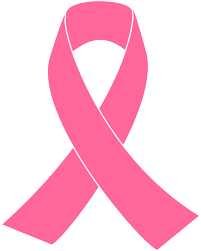For years, October’s pink ribbons are a reminder of the global Breast Cancer Awareness Month. Whether it is a relative, a friend, a colleague, or a neighbor, breast cancer’s impact is wide, and most people have been touched by this disease in some way.
Screenings for breast cancer are especially important this year when many health screenings are being delayed because of the COVID-19 pandemic. As a nurse, your schedule may have become so busy that you’ve put off scheduling your mammogram until you have more time or more energy. Breast Cancer Awareness Month is a good reminder to get those essential screenings back on your calendar.
Because breast cancer can appear at any time, it’s critical to make sure you don’t skip any screenings. You may delay one and before you realize it, another year has gone by before you are getting another mammogram.
According to the American Cancer Society, one in eight women will receive a diagnosis of breast cancer in her lifetime. And many of those women have no known family history of the disease or any particular known risk factors.
Fortunately, advancements continue to develop in breast cancer detection and treatment. Improved drug therapies, surgical treatment, chemotherapies, and post-treatment plans continue to boost the survival rates of women and men diagnosed with breast cancer.
And each year seems to bring new awareness of steps you can take to help reduce your risk, especially if you are in a high-risk category.
What can you do to reduce your risk?
- Get Screened
Although screening might seem like it can’t prevent breast cancer from developing, it can prevent it from spreading if it’s caught early. Screening can detect breast cancer in its earliest stages, sometimes at a precancerous state. An early diagnosis can allow for more options.
- Get Regular Exercise
You don’t have to be a fitness guru to reap the benefits of moving your body when it comes to prevention. According to the National Breast Cancer Foundation, Inc., moderate exercise, such as a brisk walk, gardening (raking leaves counts!), or dancing, all count. Move your body in a way you enjoy because that means you’re more likely to do it. Get about 30 minutes a day of activity to help keep you strong, boost your immune system, and reduce inflammation.
- Keep Your Weight Steady
Remaining at or close to a normal weight for your height may help reduce your risk.
- Eat Purposefully
Nutrient-rich foods, particularly fruits and vegetables, can help reduce the risk of developing many cancers. Breastcancer.org offers plenty of tips for eating for cancer prevention. Include a range of fruits and vegetables, lots of omega 3 fatty acids, and try to reduce saturated fat.
- Limit Alcohol
According to the American Cancer Society, studies show that drinking alcohol has a direct impact on increasing breast cancer risk and the risk increases the more you drink. If you drink alcohol, limit the amount to no more than one drink a day.
- Know Your Family History
Find out what kinds of cancers run in your family. Although many breast cancers are entirely unrelated to family history, if you do have specific cancers in your family, it gives you the chance to increase your vigilance with more frequent and different types of screening or even genetic testing. According to the Susan G. Komen organization, relatives with cancers of the breast, ovaries, or prostate could put you in a higher risk category. If you have relatives with any of those cancers, discuss your options with your physician.
Science is making huge advances in breast cancer detection and treatment, and taking some action to reduce your own risk can help.
- WOC Nurses Week Highlights Specialty - April 16, 2024
- Honoring Radiology Nurses Day on April 12 - April 12, 2024
- Travel Offers New Career Possibilities - April 8, 2024



